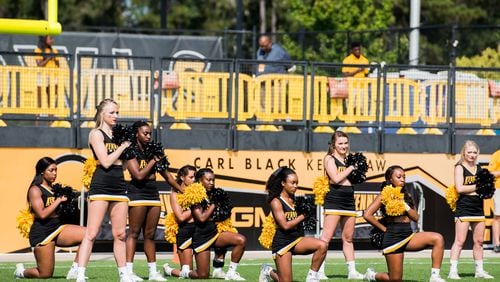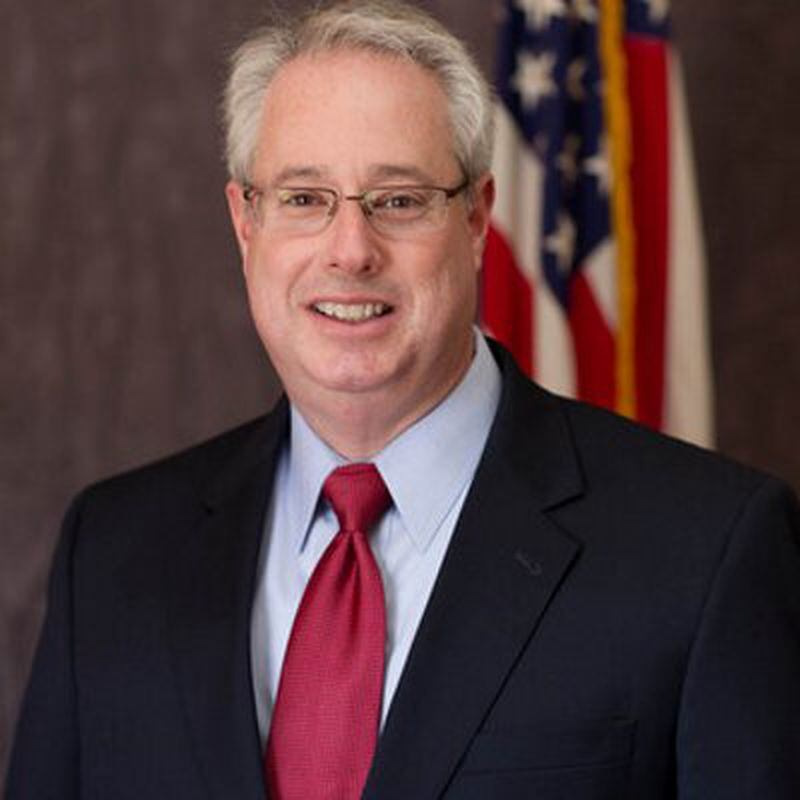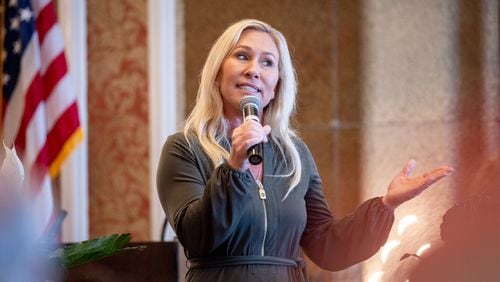The AJC is reporting that Kennesaw State University President Sam Olens may be out of a job as a result of a bungled response to the cheerleaders who took a knee on the football field.
Olens will be looking for another high-profile position in the next few weeks, according to an elected official and a senior government official with direct knowledge of the situation who spoke to The Atlanta Journal-Constitution Wednesday on the condition of anonymity because it is a personnel matter.
Faculty and student protested when Chancellor Hank Huckaby tapped Olens to lead KSU last year. While a longtime resident of Cobb County, an attorney and a popular Republican politician, Olens did not bring any academic or higher education background to the job of running the 35,000-student campus. (He did bring Gov. Nathan Deal's endorsement.)
That lack of experience showed, most notably in his response to the KSU cheerleaders who took a knee on the field in late September during the national anthem to protest racism and racist policing. Olens knows the law on free speech on public campuses; he was the Georgia attorney general. Yet, he appears to have capitulated to political pressure within the county in the decision -- blamed on the KSU athletic department -- to yank the cheering squad off the field during the anthem.
Credit: Maureen Downey
Credit: Maureen Downey
His actions drew censure from the Board of the Regents, a conservative panel appointed by the governor. Regent posts have long been used to reward generous political donors, so the Regents are not radicals by anyone's definition. However, they know state policy and expect their college presidents to follow it.
As the AJC reported today in a story by Greg Bluestein, Eric Stirgus and Meris Lutz:
The inquiry into Olens' actions was sparked by an AJC report that Cobb Sheriff Neil Warren and state Rep. Earl Ehrhart, R-Powder Springs, boasted of having forced Olens to stop the young women from kneeling on the field.
"He had to be dragged there but with you and I pushing he had no choice, " Ehrhart wrote to Warren.
The Board of Regents found Olens ignored explicit instructions not to interfere with student athletes who take a knee during the anthem, and affirmed the gesture as an act of free speech protected by the U.S. Constitution.
KSU has since reversed course, allowing cheerleaders onto the field for the anthem once more. But the fallout has placed more pressure on an already strained relationship between Olens and some faculty and students.
For those of you who argue students don't have the right to kneel, look at the 1969 Tinker v. Des Moines Independent Community School District decision in which the U.S. Supreme Court ruled students could wear black armbands to school, saying the armbands were not disruptive, did not impinge upon the rights of others and were within the protection of the Free Speech Clause of the First Amendment.
As the ruling stated:
First Amendment rights, applied in light of the special characteristics of the school environment, are available to teachers and students. It can hardly be argued that either students or teachers shed their constitutional rights to freedom of speech or expression at the schoolhouse gate. This has been the unmistakable holding of this Court for almost 50 years.
While the Tinker case involved an armband protest of the Vietnam war, the ruling appears relevant to students who take a knee, especially this:
A student's rights, therefore, do not embrace merely the classroom hours. When he is in the cafeteria, or on the playing field, or on the campus during the authorized hours, he may express his opinions, even on controversial subjects like the conflict in Vietnam, if he does so without "materially and substantially interfer[ing] with the requirements of appropriate discipline in the operation of the school" and without colliding with the rights of others.
About the Author








